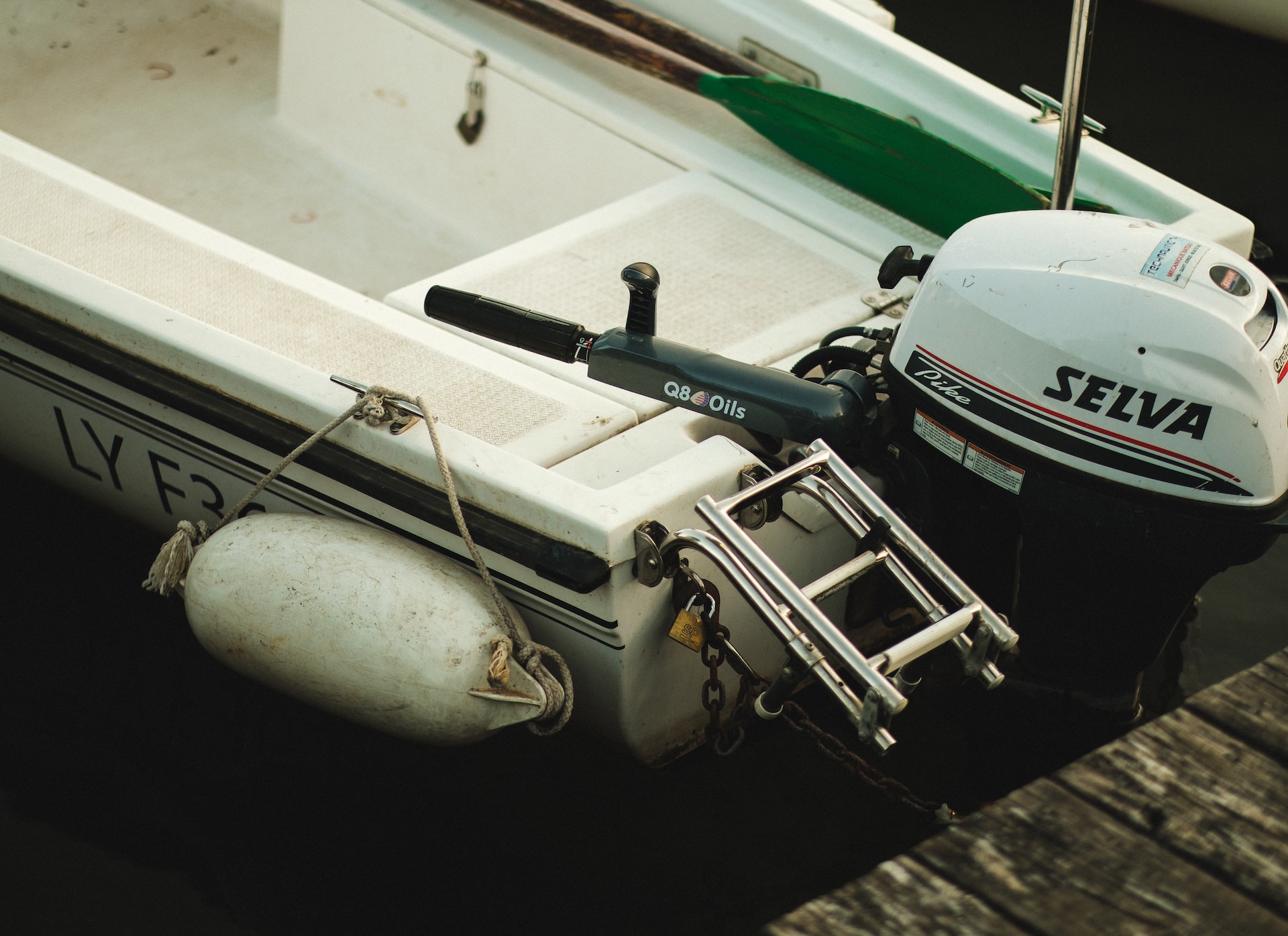February 12, 2024
5 Engine Problems Every Boat Owner Should Know

Photo by Aurelien Thomas under Unsplash License
Boating should be about relaxation, not stress. This guide walks you through five common boat engine problems that can ruin your outing and how to avoid them with a few simple checks. You’ll learn the warning signs to watch for, the role of regular maintenance, and the easy steps that keep your boat running smoothly. From overheating to shifting issues, knowing the basics can save you from being stranded. Whether you’re new to boating or experienced on the water, these tips will help you prepare, stay safe, and enjoy every trip with fewer surprises.
Which Common Boat Engine Issues Could Ruin Your Trip?
Before heading out on the water, it’s important to give your boat a quick check. A little preparation can help you avoid common engine problems that could cut your trip short. Here are a few things to watch for:
Low fuel
Always make sure you have plenty of fuel before leaving the dock. Even if you know your boat’s range, it’s best to top off the tank. Running out of gas not only ends your fun but could also leave you stranded and needing a tow.
Loss of power
If your engine suddenly sputters or loses power, the issue might be with your spark plugs or fuel filter. Try replacing the in-line fuel filter, or check for debris and water buildup that could be clogging it.
Engine won’t start
A boat that won’t start often points to an electrical problem. Dead batteries and ignition circuit issues are common culprits. First, make sure the kill switch lanyard is clipped in place. Then, look for loose or corroded connections in the ignition system.
Overheating
Engines overheat when water isn’t flowing properly through the cooling system. Check for weeds, mud, or plastic blocking the intake. Also, inspect hoses—cracks or worn spots can restrict flow and lead to shutdowns.
Gear shifting trouble
If the engine won’t accelerate or slow down, the transmission may not be engaging. Look at the gearbox and confirm the shift cable is secure. Corrosion can also cause the cable to stick; carefully work it loose if needed. If problems continue, it’s best to call a mechanic.
What Should You Know Before Choosing a Boat Engine for Your Needs?
Not every engine suits every lifestyle. Day-trippers may need smaller, fuel-efficient models, while towing sports or long cruises require more horsepower. Consider your boat’s size, weight, and local fuel availability. Ignoring these basics is a common cause of poor performance. Matching the engine to your boating habits from the start helps you avoid frustration, reduce costs, and keep your boat running smoothly for years.
How Can Regular Maintenance Keep Small Engine Issues From Becoming Big Problems?
Most failures begin with minor issues like dirty filters or worn spark plugs. Regular maintenance, such as oil changes, cooling checks, and belt inspections, prevents these from becoming major breakdowns. Routine boat maintenance also improves fuel efficiency and extends engine life. Skipping service is a common problem that shortens reliability. A little attention now protects your investment and ensures your boat is ready whenever you want to hit the water.
How Do Weather and Water Conditions Affect Engine Performance?
Engines react to the environment. Summer heat can lead to overheating, while cold water stresses starting systems. Saltwater increases corrosion risk, while freshwater may cause algae or debris clogs; both are common causes of trouble. Seasonal storms can also impact fuel quality. You may need to adjust boat maintenance to match local conditions to reduce wear and unexpected failures. Awareness and preparation give you more reliable engine performance no matter the water or weather.
What Tools and Spare Parts Should You Always Have on Board?
You should always carry the basics: spare spark plugs, belts, fuel filters, and essential tools like wrenches and screwdrivers. These address common causes of breakdowns. Extra engine oil and coolant also help with leaks or overheating. A small kit is a smart storage solution that saves you from being stranded. Keeping these parts on hand ensures quick fixes, protects valuable assets, and makes every outing safer and less stressful.
How Can You Safely Troubleshoot an Engine Problem While on the Water?
If your engine stalls, safety comes first. Drop anchor to prevent drifting and check simple, common problems: fuel levels, loose wires, or clogged filters. Always shut down the engine before handling moving parts. If you can’t resolve the issue, call for help. Practicing small checks on land builds confidence on the water. Calm troubleshooting keeps your passengers safe and protects valuable assets until proper repairs are made.
Is It Time to Unload Your Unwanted Boat for Our Vets?
If you consistently face engine problems during boating trips, it may be time to consider retiring your boat and avoiding the headaches and expenses associated with repairs.
What better way to retire your old boating companion than by using it to support our former servicemen and servicewomen? Many veterans don’t have nearby access to important support programs. Some struggles they might encounter are difficulty landing jobs, service-connected disabilities and illnesses, and adequate housing.
You can make a difference and help them rebuild their lives by simply donating your unwanted boat to Veteran Car Donations. By auctioning your vessel, we’ll transform it into a life-changing instrument for the veterans in your area.
The proceeds from the boat’s sale will go directly to our nonprofit partners. These IRS-approved 501(c)(3) nonprofit organizations are committed to helping disadvantaged veterans, providing them with housing and financial assistance, employment and livelihood opportunities, family support, free quality health care and medical treatment, psychotherapy services, and other services meant to improve their living conditions.
After your generous contribution is sold, you’ll be mailed the 100% tax-deductible sales receipt, which allows you to claim the maximum tax deduction based on your boat’s selling price or value.
Furthermore, we provide free pickup and towing services to our donors across the United States. Wherever your boat is moored or stored in the country, we’ll take it at no cost to you.
The best reward you’ll get is the satisfaction you’ll feel for doing something that can transform the lives of the suffering veterans in your area.
We accept not just your unwanted boat but almost all other types of vehicles, including those that are damaged and no longer running.
For more information about our donation program, including our simple and hassle-free donation process, head over to our FAQs page. If you have any questions or concerns, call anytime through our toll-free hotline at 877-594-5822 or leave us a message here.

Photo by Min An under Pexels License
Won’t You Give Hope to Our Heroes Today?
You have the power to impact the lives of our former servicemen and servicewomen. By donating your used boat, you’re giving them the chance to live the dignified and decent lives they deserve. Call Veteran Car Donations at 877-594-5822 or fill out our online donation form now!
Last Updated: September 18th, 2025
